Strictly Personal
Palliatives and funding sources, By Sheriffdeen Tella
Published
10 months agoon

Nigeria has a way of over-glorifying some terms, concepts, or words just like inventing new words for uncommon dictionaries. The reigning words today are ‘subsidy’ and ‘palliatives.’ And, we can also add, to a lesser frequency, taxes, oil theft, dollar or dollar rate, fuel price, and prices of other consumable goods. Even, the World Bank and its allies are trying to catch on the issue of palliatives to force the government to take more foreign loans and the government itself is eying such loans with the justification that it is a quick fix to solving the oil subsidy removal problems.
The question is: does the country need loan to meet the demands of the palliatives? Yes. There is no fund for other things after servicing debts and paying salaries in the legislative and executive arms of government. Money is borrowed to pay civil and public servants, as well as other categories of staff. Former president Muhammadu Buhari’s government economic managers found it most convenient to run the economy on borrowing while funds being generated were siphoned into private pockets and diverted to unproductive projects and programmes. It was the time an individual, an officer in charge of accounting for the inflow and outflow of funds, the Accountant General of the Federation could embezzle over N100bn while the country was begging for less than half of that in the credit market! Where is the man today? I am sure he is not in any jail!
When President Bola Tinubu said that the government has been able to save N400bn on fuel subsidy, some people thought the money was actually available in government covers. That is the money that would have been collected by the fuel subsidy mafia. At least, a large proportion would have gone to them. They should be the one to bail us out now.
If palliative payments would require loans and will be distributed in naira, why do we have to go for foreign loans in foreign currencies? We have used sukuk bonds to construct many roads including the second Niger Bridge. In all requests for the sukuk loans, there was over-subscription. Even the monthly government bonds are oversubscribed. This implies that we have lots of idle funds in this country. Not all the idle funds are stolen though but despite the mop up of cash by the Central Bank of Nigeria during the failed currency design policy, lots of cash were still unaccounted for and looking for investment avenue. With appropriate administrative charges, palliative funds will be raised with ease.
In the last eight years, new moneybags have been created with over N10tn funds that cannot be taken to banks and are looking for safety nets. So, we now need sukuk bonds, not for roads or bridges but to reconstruct devastated human beings. It will even be easy to measure the judicious use of the sukuk bonds as statistics will show reduction in the number of poor Nigerians, the number of new businesses coming up and the employment generated.
Presently, people living in the North thought that all the roads in the South have been reconstructed with the sukuk bonds until they start reading in the papers that the Lagos-Ibadan Expressway, the only major road in the South-West has not been completed till now while those in the South thought all the roads in the North have taken all the sukuk funds until they too start reading of the uncompleted Kaduna-Abuja Road. There are still serious infrastructural deficiencies and the need to continue to work on them cannot be underplayed. But those who are going to enjoy the infrastructure must live first. So, let the sukuk fund go for palliatives.
Any country that spends half of its revenue on servicing and paying foreign loans is in a debt trap. Nigeria is already in a debt trap as it spends about 80 per cent of its revenue on debt servicing. It is a major position of weakness with a large proportion of the population in poverty trap. Wikipedia explains that debt-trap is an international financial relationship where a creditor country or an institution extends debt to a nation partially or solely, to increase the lender’s political leverage. It is a situation in which financial obligations outweigh the ability to repay the loans. What Nigeria should be working out now is how to get out of the debt trap not to further compound it.
In the 1970 and much of the 1980s, three regions of the world were immersed in loan saga. The Latin American countries, most African and Southeast Asian countries. When they got fed up with serial debt repayments with rising interest rates, they formed an alliance and demanded debt relief strategies as a group. Their development became stalled and poverty was everywhere in these regions. The lenders were initially adamant but later succumbed and worked out modality for paying the principal of the loans while the interests were largely and conditionally forgiven. The Latin American and some of the Southeast Asian countries have since exited debt trap and begging for debt relief. They have since fashioned out life without crushing loans and many have become prosperous and economies to reckon with in industrialisation and exports of manufactures. With focus on debt, those countries would have remained poor. Africa, the continent with the richest natural resources, remains the continent with begging pan and beggar-thy-neighbour policies. Nigeria is the chief culprit.
When Nelson Mandela said that if Nigeria gets it right, the whole of Africa would get it right. He was not saying that Nigeria was the best country in Africa but challenging us to show leadership given the population, the volume of high level of human capital and physical natural endowment nature bestows on us, as well as the leadership roles we played in liberating politically suppressed African countries. South Africa, where Mandela comes from (although a global citizen), is an industrialised economy and well diversified. The literacy level is much higher than Nigeria and we know she is part of the G20 or the best 20 countries in the world in terms of industrialisation and economic development. Nigeria is not part of the G7, the most advanced economies; not part of the G20 but has always been a glorified member of ‘the rest of the world’! The Third world economy.
With no partners or coalition to fight for debt forgiveness, Africa is now in bad shape and would have to repay its loans or get under. Many times, God bailed us out with the oil boom, to allow us to use the humongous revenue to exit from debts. Nigeria would have seized the opportunity presented by former president Olusegun Obasanjo when he paid off virtually all our debts before 2007 with forgiveness of the interests. We would have exited the debt conundrum and moved towards industrialisation and sanity but the same Peoples Democratic Party that took us out of debt under Obasanjo returned us there under Goodluck Jonathan.
The All Progressives Congress under Buhari took us into a debt trap. Will the APC under Tinubu take us out of the debt trap? It is possible but I am not sure. There are enough suggestions in literature on how to get out of debt trap. A country has to boost alternatives to foreign borrowing. Domestic mobilisation of funds is such an alternative. It was reported during the past week that the government was able to redeem a $500m bond. Was it done to be able to go into new debt? It should not be.
It is better to overborrow internally than externally. It would be seen as the transformation of an idle fund from state of idleness or inertia to active, employable and judicious state. It is a state of funds from people to the government for judicious use. Given the country’s level of external fund indebtedness, any external organisation ready to give us loans without moratorium on the existing ones, does not wish our economy well. It must have an ulterior motive; an intention to enslave us forever. When the World Bank started dangling the $800m loans after warning the government of the danger that the country is immersed in credit rating, I smelt a rat. The readiness of the World Bank to offer a loan must have also given the American Bank the confidence to come in to offer its ‘financial assistance’ to a country under the crunch of foreign loan. Let’s be careful. Let us return the foreign loan and concentrate on domestic fund mobilisation. Also, let production and consumption go simultaneously.
You may like
-


MTN Foundation announces 2024 scholarship for Nigerian students
-


Nigeria’s Air Peace accused of safety violation by UK regulator
-
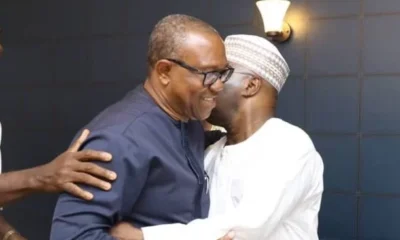

Nigeria 2027: Opposition party chieftain Atiku vows to support Obi if …
-


Nigeria: Court insists Binance executive can face trial on behalf of firm
-


Tinubu’s ‘Renewed Hope Agenda’ repositioning Nigeria as global investment hub— VP Shettima
-
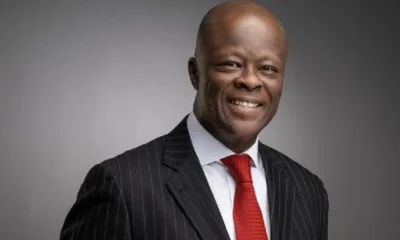

Nigerian govt denies reports it plans to borrow pension fund for infrastructure
Strictly Personal
If I were put in charge of a $15m African kitty, I’d first deworm children, By Charles Onyango-Obbo
Published
1 week agoon
May 13, 2024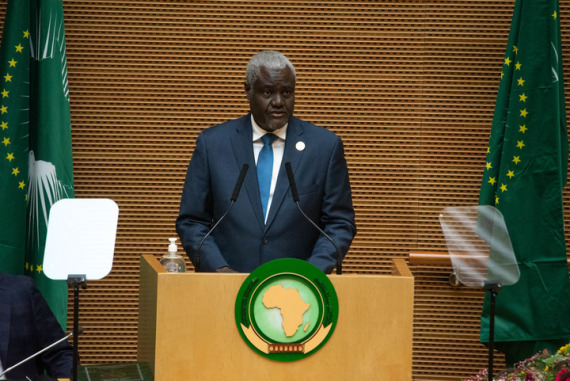
One of my favourite stories on pan-African action (or in this case inaction), one I will never tire of repeating, comes from 2002, when the discredited Organisation of African Unity, was rebranded into an ambitious, new African Union (AU).
There were many big hitters in African statehouses then. Talking of those who have had the grace to step down or leave honourably after electoral or political defeat, or have departed, in Nigeria we had Olusegun Obasanjo, a force of nature. Cerebral and studious Thabo Mbeki was chief in South Africa. In Ethiopia, the brass-knuckled and searingly intellectual Meles Zenawi ruled the roost.
In Tanzania, there was the personable and thoughtful Ben Mkapa. In Botswana, there was Festus Mogae, a leader who had a way of bringing out the best in people. In Senegal, we had Abdoulaye Wade, fresh in office, and years before he went rogue.
And those are just a few.
This club of men (there were no women at the high table) brought forth the AU. At that time, there was a lot of frustration about the portrayal of Africa in international media, we decided we must “tell our own story” to the world. The AU, therefore, decided to boost the struggling Pan-African New Agency (Pana) network.
The members were asked to write cheques or pledges for it. There were millions of dollars offered by the South Africans and Nigerians of our continent. Then, as at every party, a disruptive guest made a play. Rwanda, then still roiled by the genocide against the Tutsi of 1994, offered the least money; a few tens of thousand dollars.
There were embarrassed looks all around. Some probably thought it should just have kept is mouth shut, and not made a fool of itself with its ka-money. Kigali sat unflustered. Maybe it knew something the rest didn’t.
The meeting ended, and everyone went their merry way. Pana sat and waited for the cheques to come. The big talkers didn’t walk the talk. Hardly any came, and in the sums that were pledged. Except one. The cheque from Rwanda came in the exact amount it was promised. The smallest pledge became Pana’s biggest payday.
The joke is that it was used to pay terminal benefits for Pana staff. They would have gone home empty-pocketed.
We revive this peculiarly African moment (many a deep-pocketed African will happily contribute $300 to your wedding but not 50 cents to build a school or set up a scholarship fund), to campaign for the creation of small and beautiful African things.
It was brought on by the announcement by South Korea that it had joined the African Summit bandwagon, and is shortly hosting a South Korea-Africa Summit — like the US, China, the UK, the European Union, Japan, India, Russia, Italy, Saudi Arabia, and Turkey do.
Apart from the AU, whose summits are in danger of turning into dubious talk shops, outside of limited regional bloc events, there is no Pan-African platform that brings the continent’s leaders together.
The AU summits are not a solutions enterprise, partly because over 60 percent of its budget is funded by non-African development partners. You can’t seriously say you are going to set up a $500 million African climate crisis fund in the hope that some Europeans will put up the money.
It’s possible to reprise the Rwanda-Pana pledge episode; a convention of African leaders and important institutions on the continent for a “Small Initiatives, Big Impact Compact”. It would be a barebones summit. In the first one, leaders would come to kickstart it by investing seed money.
The rule would be that no country would be allowed to put up more than $100,000 — far, far less than it costs some presidents and their delegations to attend one day of an AU summit.
There would also be no pledges. Everyone would come with a certified cheque that cannot bounce, or hard cash in a bag. After all, some of our leaders are no strangers to travelling around with sacks from which they hand out cash like they were sweets.
If 54 states (we will exempt the Sahrawi Arab Democratic Republic for special circumstances) contribute $75,000 each, that is a good $4.05 million.
If just 200 of the bigger pan-African institutions such as the African Development Bank, Afrexim Bank, the giant companies such as MTN, Safaricom, East African Breweries, Nedbank, De Beers, Dangote, Orascom in Egypt, Attijariwafa Bank in Morocco, to name a few, each ponied up $75,000 each, that’s a cool $15 million just for the first year alone.
There will be a lot of imagination necessary to create magic out of it all, no doubt, but if I were asked to manage the project, I would immediately offer one small, beautiful thing to do.
After putting aside money for reasonable expenses to be paid at the end (a man has to eat) — which would be posted on a public website like all other expenditures — I would set out on a programme to get the most needy African children a dose of deworming tablets. Would do it all over for a couple of years.
Impact? Big. I read that people who received two to three additional years of childhood deworming experience an increase of 14 percent in consumption expenditure, 13 percent in hourly earnings, and nine percent in non-agricultural work hours.
At the next convention, I would report back, and possibly dazzle with the names, and photographs, of all the children who got the treatment. Other than the shopping opportunity, the US-Africa Summit would have nothing on that.
Charles Onyango-Obbo is a journalist, writer, and curator of the “Wall of Great Africans”. X@cobbo3
Strictly Personal
AU shouldn’t look on as outsiders treat Africa like a widow’s house, By Joachim Buwembo
Published
2 weeks agoon
May 9, 2024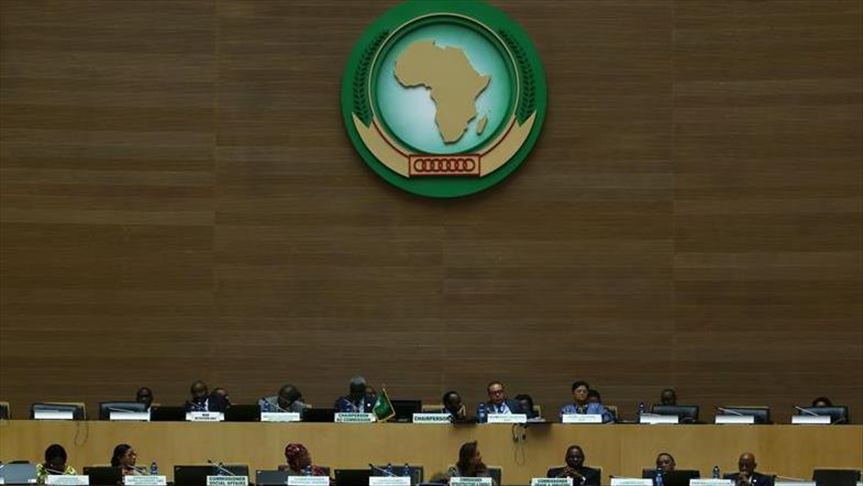
There is no shortage of news from the UK, a major former colonial master in Africa, over whose former empire the sun reputedly never set. We hope and pray that besides watching the Premier League, the managers of our economies are also monitoring the re-nationalisation of British Railways (BR).
Three decades after BR was privatised in the early to mid-nineties — around the season when Africa was hit by the privatisation fashion — there is emerging consensus by both conservative and liberal parties that it is time the major public transport system reverts to state management.
Yes, there are major services that should be rendered by the state, and the public must not be abandoned to the vagaries of purely profit-motivated capitalism. It is not enough to only argue that government is not good at doing business, because some business is government business.
Since we copied many of our systems from the British — including wigs for judges — we may as well copy the humility to accept if certain fashions don’t work.
Another piece of news from the UK, besides football, was of this conservative MP Tim Loughton, who caused a stir by getting summarily deported from Djibouti and claiming the small African country was just doing China’s bidding because he recently rubbed Beijing the wrong way.
China has dismissed the accusation as baseless, and Africa still respects China for not meddling in its politics, even as it negotiates economic partnerships. China generously co-funded the construction of Djibouti’s super modern multipurpose port.
What can African leaders learn from the Loughton Djibouti kerfuffle? The race to think for and manage Africa by outsiders is still on and attracting new players.
While China has described the Loughton accusation as lies, it shows that the accusing (and presumably informed) Britons suspect other powerful countries to be on a quest to influence African thinking and actions.
And while the new bidders for Africa’s resources are on the increase including Russia, the US, Middle Eastern newly rich states, and India, even declining powers like France, which is losing ground in West Africa, could be looking for weaker states to gain a new foothold.
My Ugandan people describe such a situation as treating a community like “like a widow’s house,” because the poor, defenceless woman is susceptible to having her door kicked open by any local bully. Yes, these small and weak countries are not insignificant and offer fertile ground for the indirect re-colonisation of the continent.
Djibouti, for example, may be small —at only 23,000square kilometres, with a population of one million doing hardly any farming, thus relying on imports for most of its food — but it is so strategically located that the African Union should look at it as precious territory that must be protected from external political influences.
It commands the southern entrance into the Red Sea, thus linking Africa to the Middle East. So if several foreign powers have military bases in Djibouti, why shouldn’t the AU, with its growing “peace kitty,” now be worth some hundreds of millions of dollars?
At a bilateral level, Ethiopia and Djibouti are doing impressively well in developing infrastructure such as the railway link, a whole 750 kilometres of it electrified. The AU should be looking at more such projects linking up the whole continent to increase internal trade with the continental market, the fastest growing in the world.
And, while at it, the AU should be resolutely pushing out fossil-fuel-based transportation the way Ethiopia is doing, without even making much noise about it. Ethiopia can be quite resolute in conceiving and implementing projects, and surely the AU, being headquartered in Addis Ababa, should be taking a leaf rather than looking on as external interests treat the continent like a Ugandan widow’s house.
Buwembo is a Kampala-based journalist. E-mail:buwembo@gmail.com
EDITOR’S PICK


Moroccan steeplechase star El Bakkali aims for gold at Paris Olympics
Morocco’s steeplechase champion, Soufiane El Bakkali, says he is aiming for the gold medal at the upcoming Paris Olympics after...


MTN Foundation announces 2024 scholarship for Nigerian students
MTN Nigeria Foundation has announced its 2024 scholarship for Nigerian students to support their education and empower the next generation...


One-year-old Ghanaian breaks GWR as world’s youngest artist
A one-year-old Ghanaian, Ace Liam, has broken a Guinness World Record as the youngest male artist. The infant’s groundbreaking achievement...
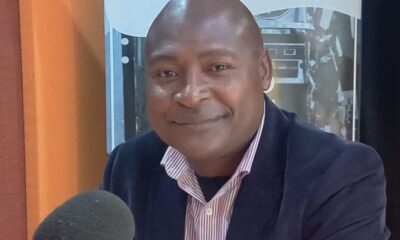

Introduction of taxation on online political content aligns with international practices, says UPND media director
The introduction of taxation on online political content aligns with international standard practices used by governments to broaden their tax...
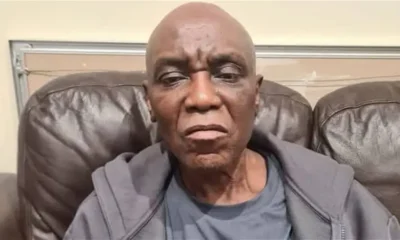

UK to deport physically-challenged Nigerian after 38 years
The United Kingdom has threatened to deport a physically-challenged Nigerian, Anthony Olubunmi George, after living in the country for over...


Nigeria’s Air Peace accused of safety violation by UK regulator
Nigeria’s Civil Aviation Authority has received a letter from the United Kingdom Civil Aviation Authority claiming that Nigerian carrier, Air...


How South Sudanese singer John Frog moved from child soldier to Afrobeats star
John Frog may be one of South Sudan’s most successful musicians at the moment, but a little over 10 years...


American risk management solutions provider Archer opens business in Egypt
American risk management solutions provider, Archer, has announced expanding its operations to Africa with Egypt as the first point of...


South African Akani Simbine beats Omanyala to pick 100m gold at Atlanta City Games
South African sprint sensation, Akani Simbine, on Saturday at the Atlanta City Games further put a dent on Kenyan 100m...


Church in Northern Province cautions against cyberspace abuse, supports cyber security law
The church in Northern Province has issued a warning to Zambians regarding the misuse of cyberspace in the guise of...
Trending
-

 Sports1 day ago
Sports1 day agoSouth African Akani Simbine beats Omanyala to pick 100m gold at Atlanta City Games
-

 Metro2 days ago
Metro2 days agoNigeria kicks as South African police torture citizen to death
-

 Musings From Abroad14 hours ago
Musings From Abroad14 hours agoNigeria’s Air Peace accused of safety violation by UK regulator
-

 Metro1 day ago
Metro1 day agoChurch in Northern Province cautions against cyberspace abuse, supports cyber security law


